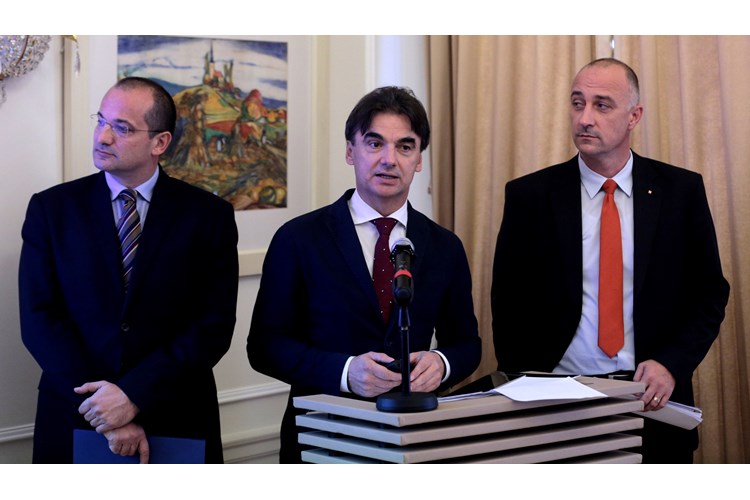Deputy Prime Minister Branko Grcic said that the results of the World Bank's Doing Business 2016 report showed that Croatia had made huge progress in competitiveness, especially in the last two years, adding that the country's advancement from 89th to 40th place in two years was impressive.
"Croatia's 40th place among 189 countries surveyed is very, very high, given the circumstances in the last five to six years and the great effort of the government," Grcic told a press conference. He added that he was especially pleased that Croatia had overtaken most of the countries in Southeast Europe as well as countries such as Belgium, Italy and Hungary.
The minister stressed that Croatia's score in the Doing Business ranking was not accidental but the result of the government's efforts and the country's EU membership. He concluded by saying that Croatia was becoming an increasingly desirable destination for doing business and investment.
Responding to a journalist's remark that according to the World Bank's new methodology Croatia actually fell by one spot compared with last year's ranking, Grcic said that the progress the country had made in the last two years was unquestionable.
Economy Minister Ivan Vrdoljak said that Croatia's score was proof that the present government had a vision and the know-how, unlike the previous government. He lashed out at the opposition for undermining Croatia's image abroad by portraying its economy as one of the worst in the world. He said that such rhetoric was not patriotism but impudence.
Justice Minister Orsat Miljenic said that Croatia's position in the Doing Business ranking would have been better had the World Bank taken into account the measures taken by the government since June, such as reduced costs of starting up a business as of November 1, faster property registration and resolution of trade disputes, and the new bankruptcy law.
Asked if he expected any concessions from the European Commission in the Excessive Deficit Procedure in light of the migrant crisis, which has been hinted by the EU as a possibility, Grcic said he had no great expectations in that regard, adding that Croatia was working on meeting its obligations under this procedure and expected a portion of the funds from the EU to cover the costs of refugees.
(Text and Photo: Hina
News


